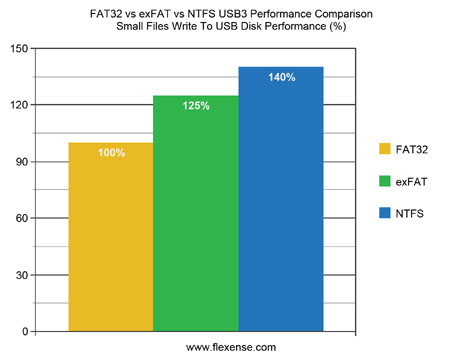FAT32 vs. exFAT: What’s the Difference and Which One’s Better?

When it comes to choosing a file system, FAT32 and exFAT are two of the most popular options. Both are widely used in various devices such as USB flash drives, external hard drives, memory cards, and even game consoles. Yet, there are some differences between the two that may affect your choice. In this article, we’ll take a closer look at FAT32 vs. exFAT, and discover which one might be the better option for your needs.
FAT32 (File Allocation Table 32)
FAT32 is an older file system that was first introduced in Windows 95. It has been widely used ever since, and still remains popular thanks to its compatibility with various operating systems. FAT32 is supported on almost all modern devices, including Windows, Mac, Linux, and even game consoles like PlayStation and Xbox.
The file system features a maximum partition size of 2TB and a maximum file size of 4GB. This means that if you have large files that are bigger than 4GB, FAT32 may not be ideal for you. It also has a limitation in how many files and folders it can store per partition. The maximum supported file and folder limit for FAT32 is 268,435,437 files and folders, respectively.
Despite its limitations, FAT32 has several advantages. It is quick to format, and its simple structure ensures that it can be read by almost any device. The file system also uses less storage space than other file systems, which is certainly ideal if you have limited storage capacity.
ExFAT (Extended File Allocation Table)
ExFAT is a newer file system that was introduced by Microsoft in 2006. Its purpose was to address some of the limitations found in the FAT32 file system. ExFAT provides support for larger files and partitions, making it ideal for modern devices where large files are common.
The maximum partition size for exFAT is 64ZB (zettabytes), and the maximum file size is 16EB (exabytes). That’s a significant jump when compared with FAT32’s limitations. ExFAT doesn’t have a maximum file or folder limit like FAT32, making it a more flexible option. This makes exFAT an ideal option if you plan on using your device to store large files, such as videos or high-resolution images.
One downside of exFAT is that it is not supported by all devices. Apple devices, for instance, require a separate software update to be able to read and write exFAT. Some older game consoles may also have limitations when it comes to using exFAT.
Which One is Better?
In terms of which file system is better, it largely depends on your usage. If you are planning on using your device for file storage solely, FAT32 is a good option due to its wide support and smaller file size. However, if you plan on storing large files that exceed 4GB, exFAT is the way to go. It also provides better compatibility with newer devices and operating systems.




